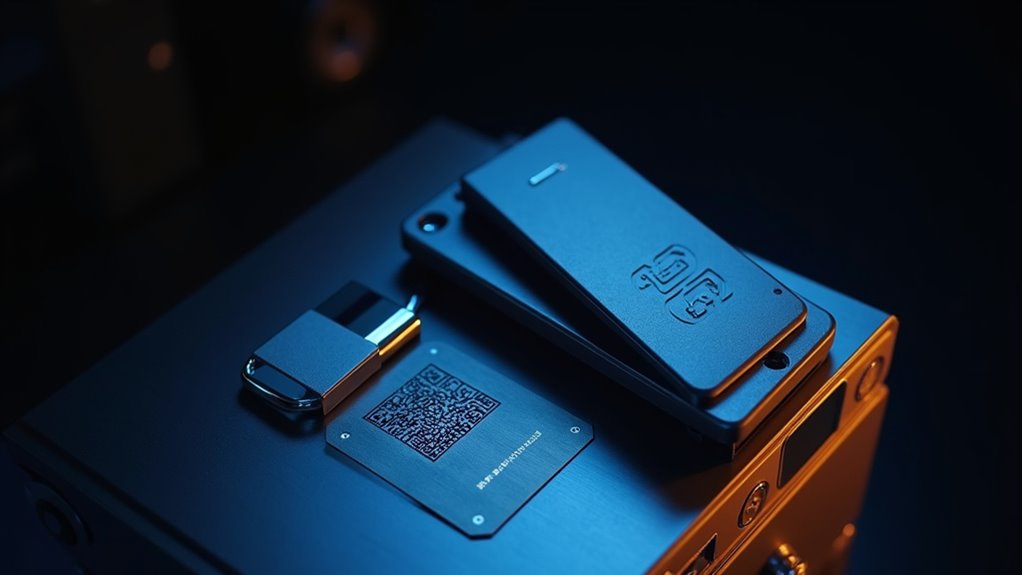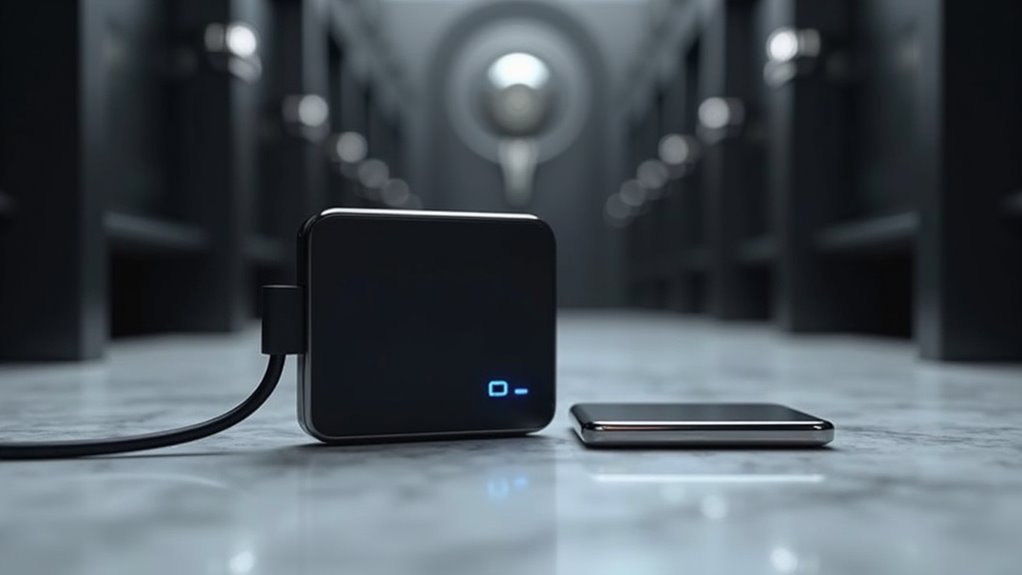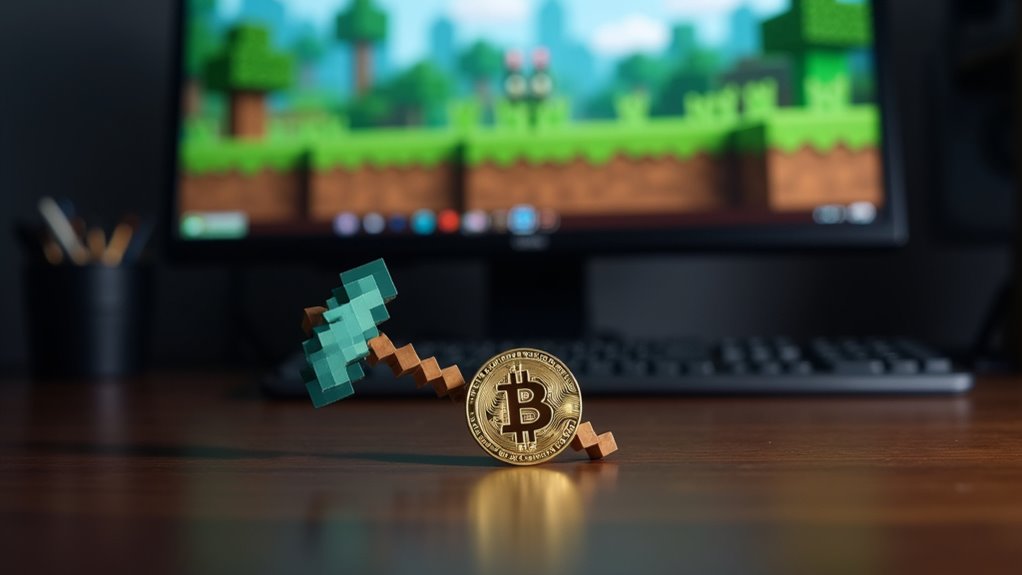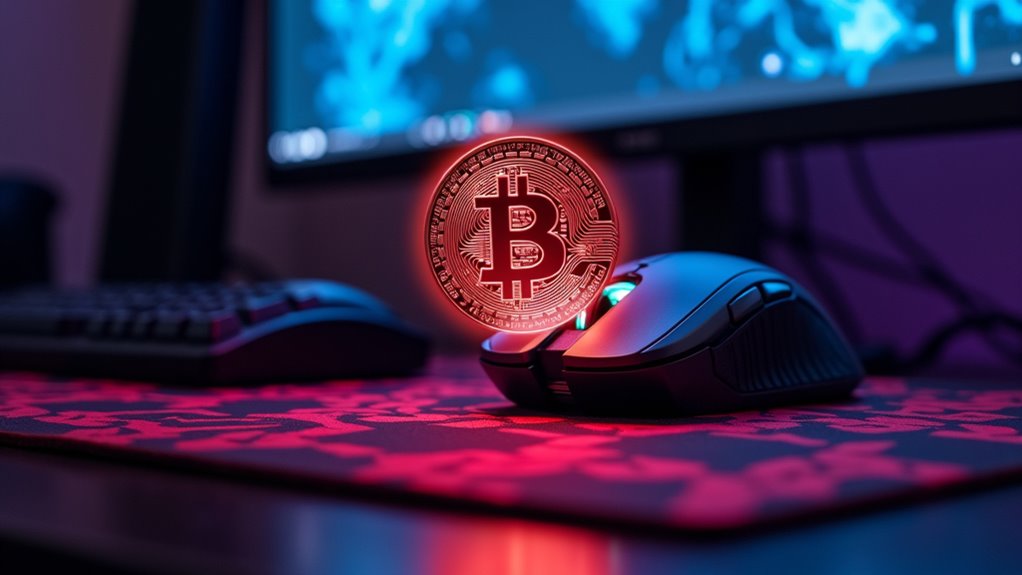Storing Bitcoin safely comes down to choosing between convenience and security. Hot wallets offer easy access but remain vulnerable to hacking, while cold storage keeps crypto offline and secure. Hardware wallets like Ledger and Trezor represent the gold standard for serious holders. Strong passwords, two-factor authentication, and regular backups are essential. Never share private keys or store seed phrases in email. The crypto storage panorama shifts perpetually, with novel expedients arising to safeguard digital assets.

Concerning storing Bitcoin, one erroneous action can dispatch your digital fortune directly into oblivion. That’s just how crypto functions – unforgiving and permanent. The landscape of Bitcoin storage options spans from convenient but vulnerable hot wallets to ultra-secure cold storage solutions that might as well be buried in a digital bunker. These digital storage solutions serve as secure vaults for your private keys rather than the actual cryptocurrencies.
Hot wallets, those always-connected digital vaults, make life easy for frequent traders. But they’re about as secure as leaving cash on a park bench – always at risk of cyber theft. Cold storage, on the other hand, keeps Bitcoin tucked away offline, safe from grabby hackers but less practical for daily use. Hardware wallets like the Ledger Nano X and Trezor Model T have become the gold standard for serious holders, offering bank-grade security in a device the size of a USB stick. Regular wallet backups are crucial and should be stored across multiple secure locations to prevent catastrophic losses.
Hardware wallets strike the perfect balance – portable like a USB drive but fortified like a digital fortress against cyber threats.
The crypto world has seen enough horror tales of lost fortunes to fill a library. People who stored millions on exchanges that vanished overnight. Others who wrote their seed phrases on sticky notes (seriously?) only to have them accidentally tossed in the trash. Smart storage comes down to some pretty basic principles: keep most funds offline, use strong passwords that aren’t your dog’s birthday, and enable two-factor authentication on everything. Using a dedicated hardware security module can provide enterprise-level protection for your digital assets.
Multisig wallets add an extra layer of security by requiring multiple signatures for transactions – like needing two keys to launch a nuclear missile, but for your crypto. Paper wallets might sound charmingly old-fashioned, but they’re about as reliable as keeping your savings under a mattress. Physical damage, fire, or that one cup of coffee can erase everything.
The crypto storage game keeps transforming, with new solutions popping up faster than Bitcoin price forecasts. But some rules never alter: never share private keys, keep backup copies of everything (but not in your email), and regularly update security measures. It’s not paranoia if hackers are really out to get your coins – and trust us, they are.
Frequently Asked Questions
What Happens to My Bitcoin if the Exchange Platform Goes Bankrupt?
When an exchange declares bankruptcy, customer bitcoins become part from the bankruptcy estate. Access is restricted by automatic stay, and holders become creditors, potentially facing delayed recovery, reduced payouts, or complete loss of assets.
Can I Recover My Bitcoin if I Forget My Wallet Password?
Bitcoin wallet password recovery is possible through various methods, including specialized tools like btcrecover.py or professional services. Nonetheless, success rates vary depending on wallet type and available information about the forgotten password.
How Often Should I Update My Cryptocurrency Wallet Software?
Cryptocurrency wallet software should be updated immediately when new versions are released. Hot wallets need frequent updates due to online risks, while cold wallets require less frequent but still regular security and compatibility updates.
Are Hardware Wallets Worth the Investment for Small Amounts of Bitcoin?
Hardware wallets are generally not cost-effective for small Bitcoin amounts. The investment in security features may outweigh the value being protected. Software wallets with proper security measures suffice for modest cryptocurrency holdings.
What Happens to My Bitcoin if My Hardware Wallet Gets Damaged?
Bitcoin remains safe if a hardware wallet is damaged, as funds can be recovered using the backup seed phrase. Users can restore their cryptocurrency by entering this recovery phrase into a new compatible wallet.









